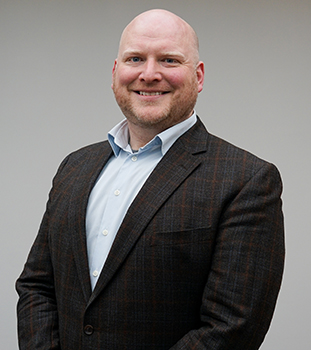The two-day program equips 32 graduate students and post-doctoral fellow trainees with critical tools to enhance their research capabilities and professional networks, laying a foundation for more effective research collaboration across the nation.
Hosted at York University, the second annual Neuromuscular Disease Network for Canada (NMD4C) Basic Neuromuscular Research Summer School offers a unique blend of specialized lectures and hands-on laboratory workshops.
Through the program's sessions, which use cutting-edge laboratory techniques, participants will engage in medical research activities and discussions with leading researchers, patient advocates and industry representatives.

Christopher Perry
The workshops are led by York graduate students and post-doctoral fellows, including:
- Luke Flewwelling, PhD student from Professor Arthur Cheng's lab;
- PhD students Madison Garibotti and Aditya Brahmbhatt from Professor Christopher Perry's lab; and
- graduate students Mark Danesh, Jaryeon Lee, Ethan Sooklal and Lucas Campagna, along with post-doctoral fellow Quentin Jean Michel Sastourne-Arrey, from Professor Anthony Scime's lab.
Student instructors will focus on sharing core techniques, such as muscle force assessments and stem cell research methods.
"The goal is to promote the open exchange of scientific expertise with muscle physiology labs across Canada, learn new ways to design research studies on muscle health in a variety of conditions," says Perry, a professor in the Faculty of Health and director of York's Muscle Health Research Centre (MHRC). "The program will also place graduate trainees and post-doctoral fellows in positions of leadership in regard to teaching and learning as part of a growing muscle health research community in Canada."
The summer school will foster a holistic understanding of neuromuscular diseases that includes patient experiences and emerging technologies, he says.
A notable aspect of this year's program is the integration of patient partners, allowing trainees to gain important insights into the lived experiences of individuals with neuromuscular disorders. This collaboration is essential, says Perry, to ensure research remains grounded in real-world applications, ultimately benefiting patient care.
Beyond research training, the program is designed to build stronger collaborations across the Canadian health landscape. By fostering connections among scientists, clinicians and patient partners, the initiative aims to enhance the understanding and treatment of neuromuscular diseases.
"Supporting early-career scientists and pre-clinical trainees is absolutely essential to advancing neuromuscular disease research in Canada," says Perry. "By providing these hands-on training opportunities and building professional networks, we're not just developing individual researchers - we're strengthening the entire ecosystem of care, research and treatment that ultimately benefits all Canadians living with neuromuscular conditions."
The experience provides trainees, and York's students and post-doctoral fellows, with an enhanced understanding of muscle disease through the latest research and patient perspectives, which will inform their own studies and potential therapeutic developments.
The summer school, which runs May 7 and 8, serves as a prelude to York's 16th annual Muscle Health Awareness Day on May 9, which continues to be a significant platform for research dissemination.
Attracting clinicians, scientists and trainees from Canada and the U.S., the May 9 event is a knowledge mobilization opportunity focused on the physiology and adaptation of muscles, vasculature and the heart during exercise and aging.
Skeletal muscle, which comprises 40 per cent of body mass and is essential for metabolism, movement and overall quality of life, along with cardiac and smooth muscles, experiences age-related decline in function that, coupled with a mostly inactive population, increases the risk of metabolic conditions like obesity, type 2 diabetes and cancer.
As Canada's population ages, addressing neuromuscular conditions is critical for reducing health-care burdens and supporting healthy aging, says Perry.
With eight distinguished speakers and over 90 trainee posters planned, the Muscle Health Awareness Day underscores ongoing efforts to elevate research in muscle health. It also serves as an opportunity to award and feature research from York's students and post-doctoral researchers.
"Through initiatives like these, York University's Muscle Health Research Centre remains at the forefront of transforming neuromuscular research and tackling broader conditions that affect muscle health, ensuring that collaboration and innovation go hand in hand," says Perry.
Visit the Muscle Health Research Centre website for more information.
This story was originally featured in YFile, York University's community newsletter.













